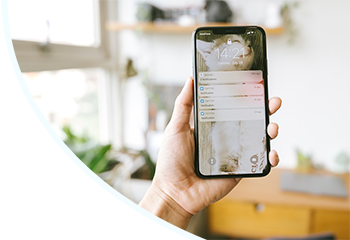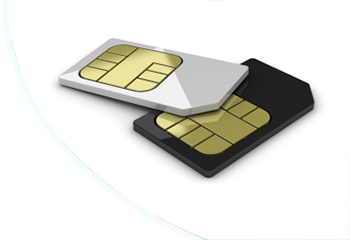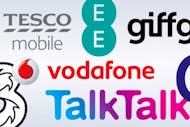If you’re a smartphone user (which you almost certainly are), you probably find yourself living your life almost entirely online. This means being able to access your messages, emails, social media feeds and entertainment anywhere you are. With 4G, mobile broadband was revolutionised, allowing millions to perform online tasks both quickly and on the go.
After years with 4G, 5G has finally arrived, promising to revolutionise mobile internet once again. If you’re interested in getting on the 5G hype train early, here’s our guide to everything you need to know.
How does 5G work?
5G essentially works in much the same way as 4G, but acts much faster. On a technical level, 5G works by operating on higher-frequency bands than 4G, utilising a brand new radio technology that offers a faster and more varied signal than standard 4G.
Whether or not you see a significant difference will depend on what phone provider you’re currently on, though it’s likely that while we’re still in the early stages, the typical user won’t notice that much of a change. This is because many phone providers are using 5G as a simple boost for 4G, while the technology is still young. 5G is capable of a lot more than just a faster speed, however, and smartphone users will see these advancements as 5G gradually becomes the norm.
How is 5G better than 4G?
Speed is the name of the game here, with 5G potentially seeing mobile broadband speeds greatly expand. The fastest current 4G networks offer around 45Mbps, which is still pretty good and a fair bit faster than most people’s home broadband. With 5G, however, this speed could increase by 10 to 20 times when it’s up to full capability.
In practical terms, this means that you’ll be able to download a full HD film in under a minute on the go. In an increasingly mobile world, this could prove invaluable, especially as mobile carriers are beginning to push unlimited data contracts harder than before.
How can I get 5G?
In order to get your hands on a 5G connection, you’ll first need a couple of things. First, you’ll have to find a mobile provider that offers 5G services, of which there is only a limited amount at the time of writing. There is, however, a chance that you’re already on the right provider, meaning that all you’d need to do is move to a plan that offers 5G - this should be simple.
Unfortunately, you’re also going to need a new phone. When 4G was launched in 2009, smartphones that were compatible came on the market before it was fully rolled out, meaning many had to wait to use their expensive new phone on 4G. This time, the rollout is happening before 5G compatible phones are released, with new phones such as the iPhone 11 now being compatible. This means that you’ll probably need a new phone in order to get on 5G, so it’s better to wait until late 2019 or early 2020 and upgrade to something compatible then.
What providers offer 5G?
A number of UK providers have launched or are planning to launch 5G services in 2019. EE was the first to enter the arena, offering 5G in major cities like London, Cardiff, Birmingham and Manchester earlier this year. It plans to expand to Leeds, Liverpool and Newcastle in 2020.
Three has begun to rollout 5G since August, with it currently covering London. Other cities are part of its plans over late 2019 and 2020, with cloud capacities part of its special features.
Vodafone has offered 5G since July of this year, with its initial rollout including London, Glasgow and Manchester, with 8 other cities being included as the year goes on.
O2 has announced that it will offer 5G from October 2019, with London, Belfast, Cardiff, Edinburgh, Slough and Leeds being part of its initial plans. By Summer 2020, O2 plans to have rolled out in 50 towns and cities.
Sky Mobile will launch 5G in November - one month after its partner O2. Sky will include all its 4G perks as part of its 5G services, including unlimited streaming via the Sky App and the rolling over of unused data.
Is 5G worth it?
Whether 5G is worth it for you will be entirely down to how much you use mobile data. It’s increasingly the main way many people get online, and if you’re the sort of smartphone user who does everything via your mobile both at home and on the go, it’s certainly going to be a worthwhile investment. Users on unlimited data plans will cherish the faster speeds and downloads, so if you’re a commuter and want to download the latest, must-have game or a Netflix movie, 5G will see you right.
Ultimately, all mobile users will eventually be connected to 5G, and if you like the look of the new Apple or Samsung phones and you live in a major city, chances are you’re going to be connected to it anyway. It’s all about whether you want to pay the extra money to experience it sooner than everyone else.










